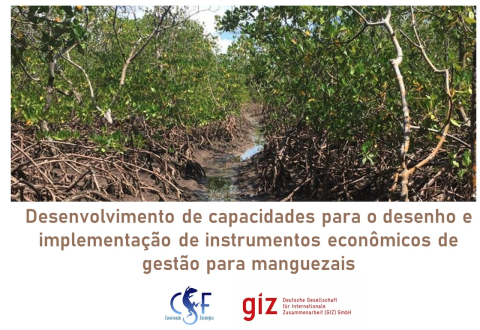
About the Course
In partnership with GIZ, The Deutsche Gesellschaft für Internationale Zusammenarbeit GmbH, Conservation Strategy Fund (CSF) held a virtual and online course on the design and implementation of economic tools to support the conservation of critical mangrove habitat across Brazil. Held over the first week of May, the five-day course focused on training 20 technical staff members from the state governments of Pernambuco, Alagoas, Bahia, and Espírito Santo.
The course covered a wide range of economic tools and concepts, including environmental economics, payments for ecosystem services (PES), carbon projects, and financial mechanisms to support mangrove conservation. At the end of the course, participants responded to a series of research questions to guide future development projects in the region, and designed proposals for new policies for mangrove restoration and protection that will be used by GIZ and the state governments in the future.
Course Overview
The course aimed to build capacity and institutional knowledge surrounding the sustainable design and management of mangrove habitat using key economic tools and concepts. Targeting public managers from key states across Brazil, CSF provided participants with an introduction to economic analysis and an overview of how to design mangrove conservation policies within the context of each participating state.
Throughout the five-day course, participants discussed the value of ecosystem services and the impact of the destruction of critical habitats on local communities and the economy. In addition, participants learned how management and regulation measures can correct market failures and maximize environmental benefits, the relationship between market failures and property rights, and how economic analysis, including cost-benefit analysis and economic valuation, can advance better environmental planning and management. Course topics included:
- Introduction to Environmental Economics and Market Failures
- Economic Management Instruments
- Economic Valuation Methods for Mangroves
- Definition of Priorities and Methodology for Project Development
- Financing Sources for Mangroves and Communication of Results
Through a combination of technical presentations and interactive group discussions, the course also focused specifically on two main research questions:
- How do states identify potential projects to maximize environmental returns?
- How can states better raise funds for investment in mangrove habitat conservation projects?
Participants then sought to develop ideas for potential projects by identifying strategic conservation areas and analyzing the environmental costs and benefits.
